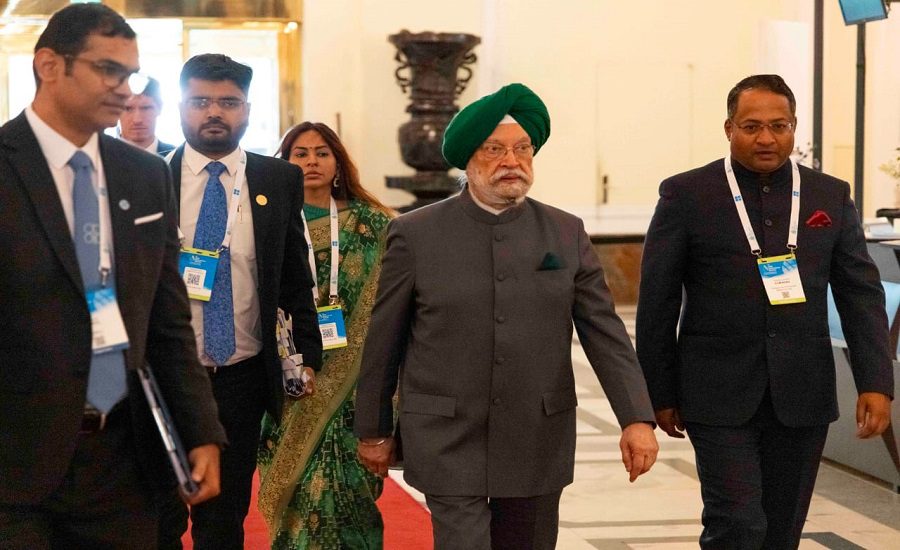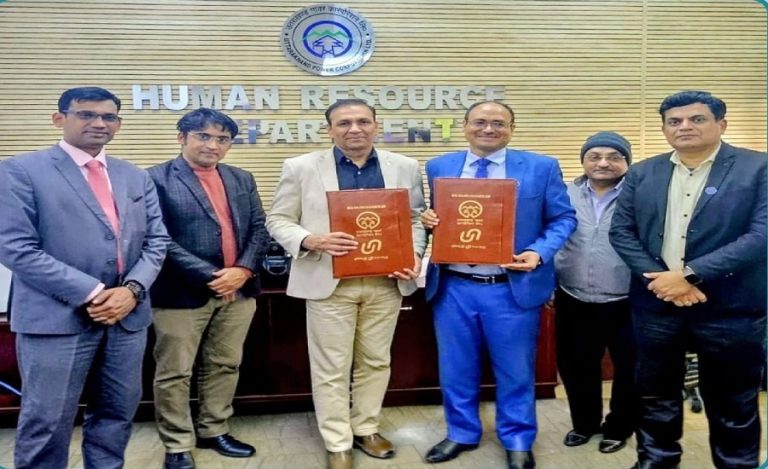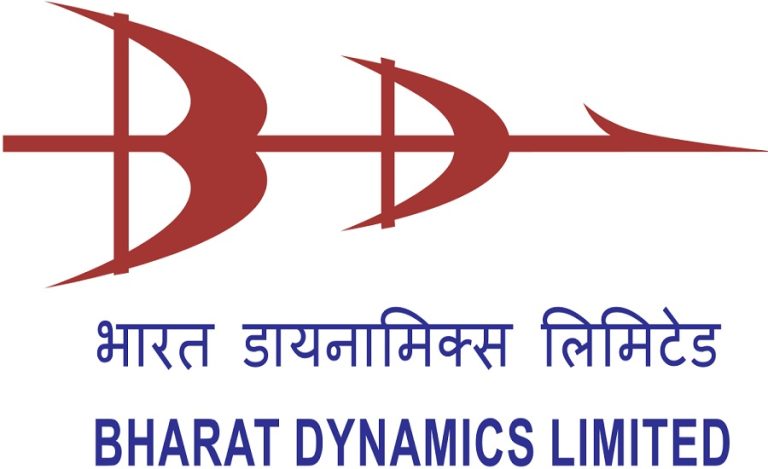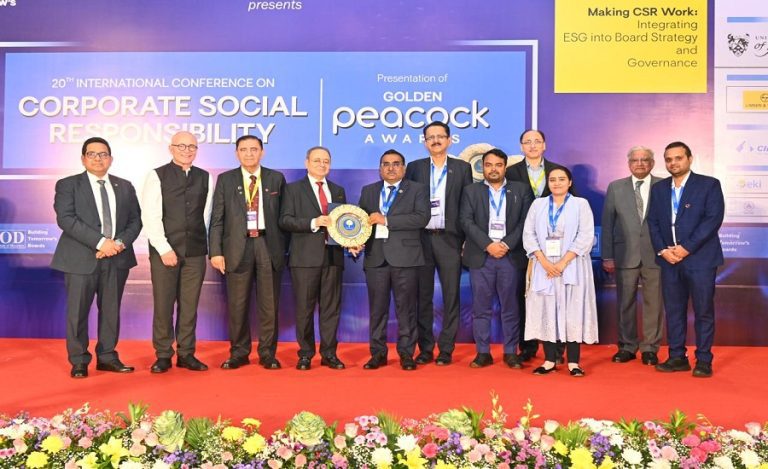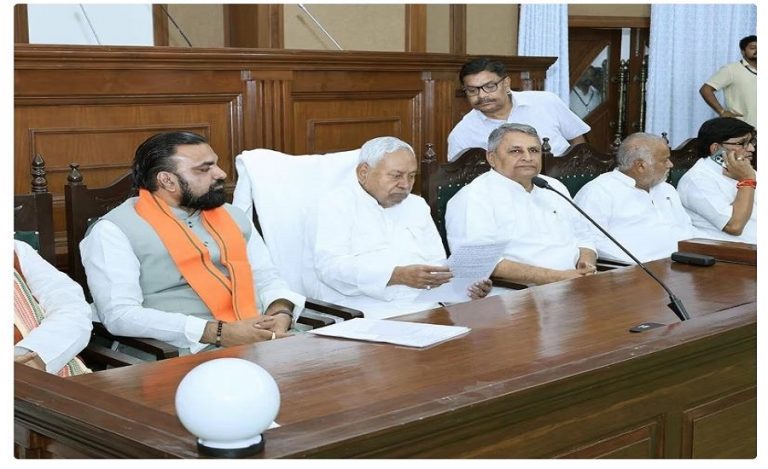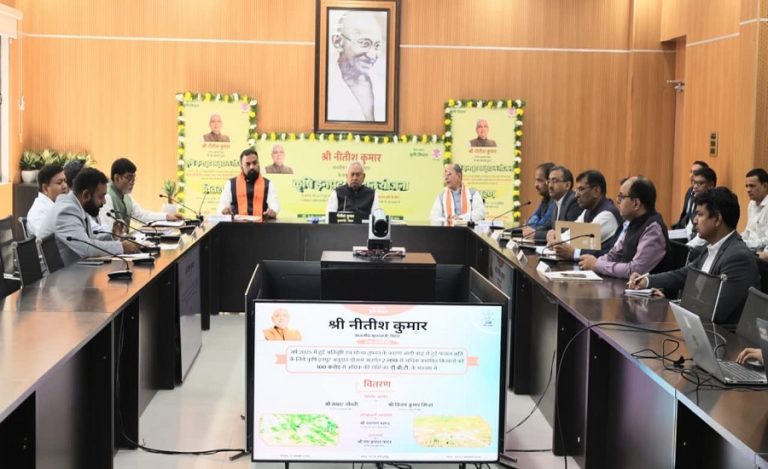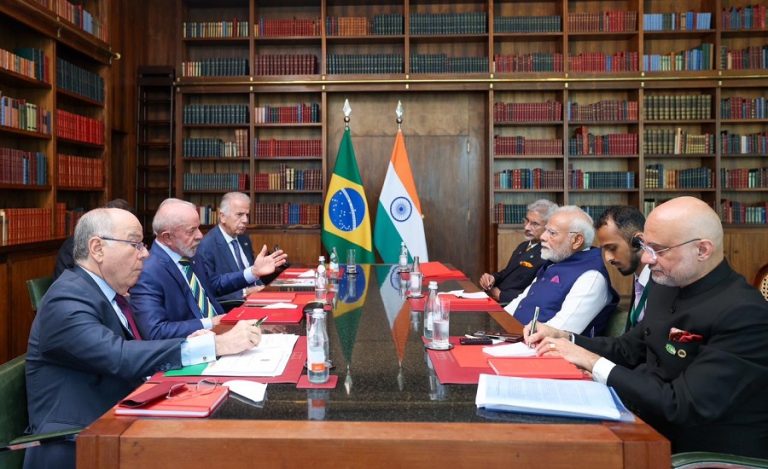Union Minister for Petroleum and Natural Gas, Hardeep Singh Puri, today outlined India’s expansive energy vision at the 9th OPEC International Seminar, declaring the country’s intent to dramatically scale up hydrocarbon exploration and production under the dynamic leadership of Prime Minister Narendra Modi.
Speaking at a high-level panel on “Oil Markets: Energy Security, Growth & Prosperity”, Minister Puri said India is set to explore 2.5 lakh sq km of new areas under the Open Acreage Licensing Policy (OALP) Round-10. This is part of an ambitious roadmap to raise total exploration acreage to 0.5 million sq km by 2025 and 1.0 million sq km by 2030.
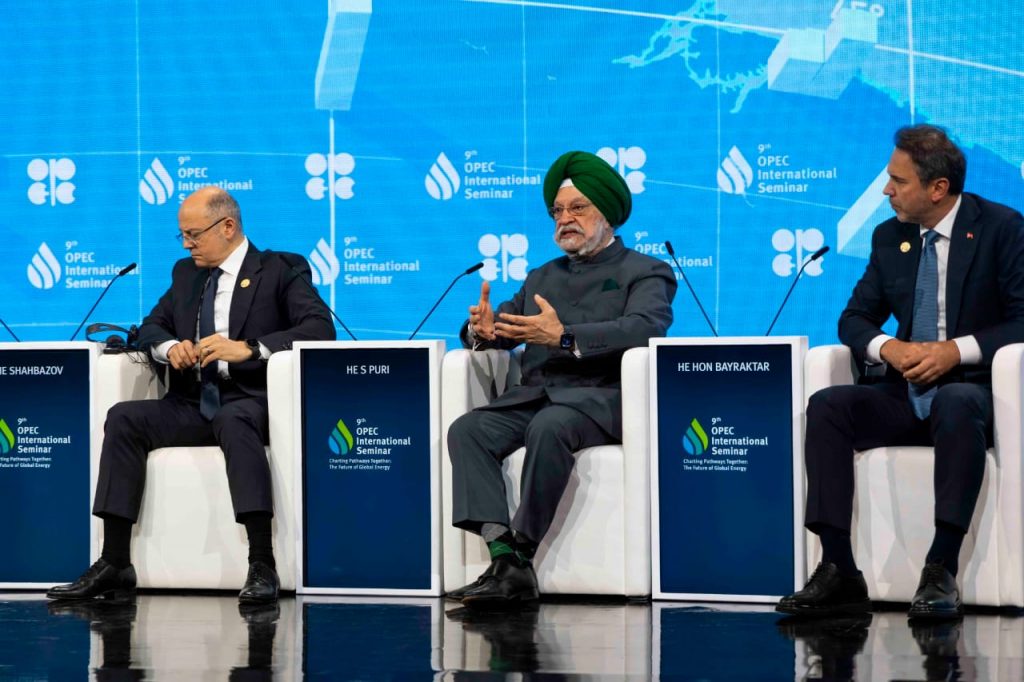
India, he said, is on the cusp of a major breakthrough, potentially discovering a Guyana-scale oilfield in the Andaman Sea. “This is one of the most aggressive and transformative upstream pushes in recent Indian history,” the Minister said, addressing a global audience of energy leaders, policymakers, and industry experts.
Minister Puri highlighted that these exploration efforts are being bolstered by key policy reforms, including the transition from a Production Sharing Contract regime to a Revenue Sharing Model under the Hydrocarbon Exploration and Licensing Policy (HELP). Additionally, amendments to the Oilfields (Regulation and Development) Act, 1948, aim to enhance lease management, improve operational safety, integrate renewable sources in hydrocarbon projects, and streamline dispute resolution.
India has also reduced ‘No-Go’ areas for exploration by 99%, freeing over 1 million sq km for exploration and production (E&P) activities. This has been supported by large-scale investments in seismic data through national programs such as the National Seismic Program (NSP), the Andaman Offshore Project, Mission Anveshan, and the Extended Continental Shelf Survey—creating a strong data-backed foundation for India’s upstream ambitions.
As the world’s third-largest energy consumer, with daily demand at 5.4 million barrels, India’s energy strategy, according to Puri, is grounded in “pragmatism, resilience, and fairness.” He emphasized that India is expected to contribute approximately 25% of the incremental global energy demand in the coming years.
To meet this demand, India is diversifying its crude oil import sources—from 27 countries a few years ago to 40 today—while simultaneously pushing for higher domestic production, transitioning to a gas-based economy, and aiming to become a global refining hub. The nation is targeting an increase in refining capacity to 310 million metric tonnes per annum (MMTPA) by 2028 and aims to scale the petrochemical sector into a $300 billion industry by 2030.
Minister Puri also lauded India’s unique achievement in navigating the global energy trilemma of availability, affordability, and sustainability. “While global fuel prices soared due to geopolitical tensions, India was the only major economy that succeeded in reducing fuel prices,” he stated.
Looking ahead, India has set a target of achieving energy independence by 2047 and Net Zero emissions by 2070. He reiterated India’s commitment to a just and inclusive energy transition, particularly for the 1.4 billion Indians and billions across the Global South. “For us, the energy transition is not only about decarbonization—it is about development with dignity,” Puri emphasized.
India is also championing biofuels as a key component of the global energy transition. The Global Biofuels Alliance, initiated by India, now has over 29 member countries and 14 international organizations. On the domestic front, India is rapidly adopting ethanol, compressed biogas (CBG), biodiesel, and sustainable aviation fuel (SAF) as part of its green roadmap.
Read Also: PM Modi’s 11 Years in Office: A Transformative Journey with Bold Strides in the Energy Sector
The 9th OPEC International Seminar, being held in Vienna, has brought together global oil producers, consumers, and policymakers to deliberate on the evolving energy landscape, with India’s vision and leadership drawing significant attention from the international community.
India hydrocarbon exploration, OPEC 2025, Hardeep Singh Puri, Open Acreage Licensing Policy, OALP Round-10, Andaman Sea oil exploration, Ministry of Petroleum and Natural Gas, HELP policy, oil and gas sector India, energy security India, crude oil imports, biofuels India, Global Biofuels Alliance, Net Zero 2070 India, energy transition, petroleum policy India, oil refining capacity India, upstream oil exploration, global energy demand, OPEC International Seminar

